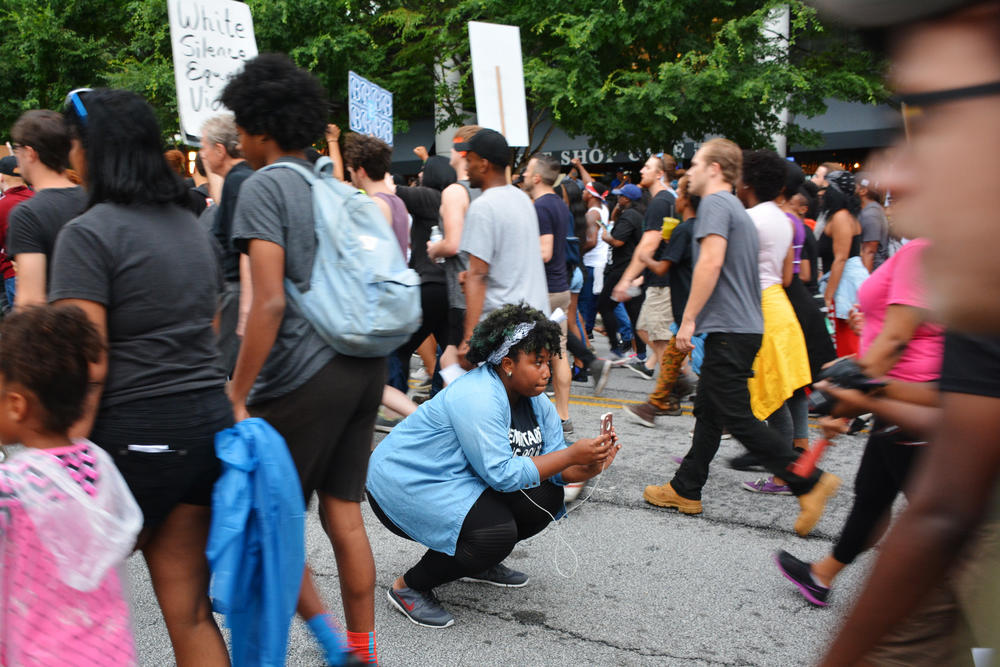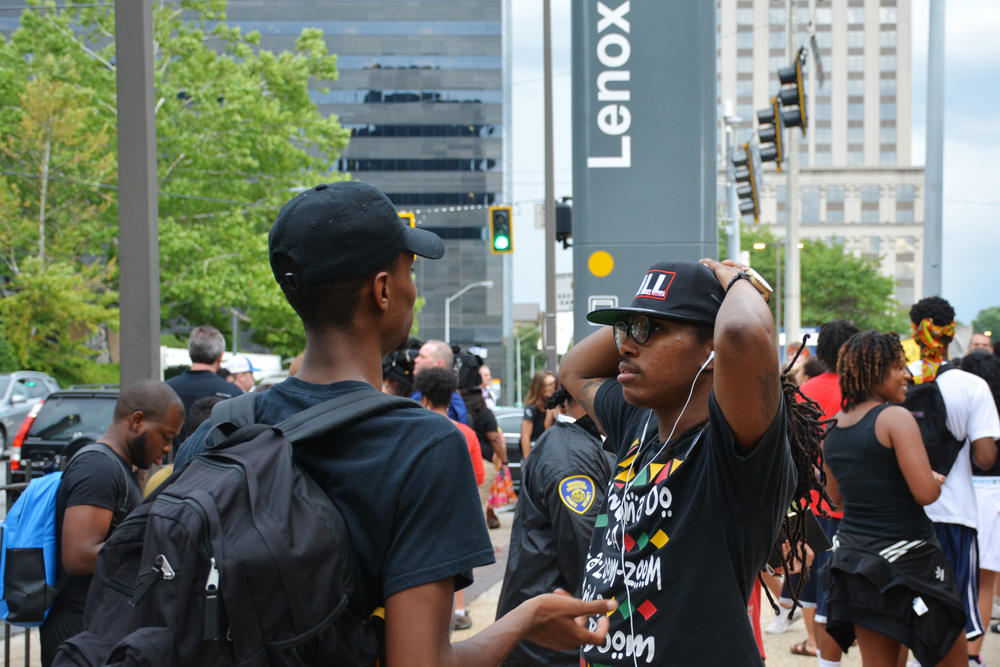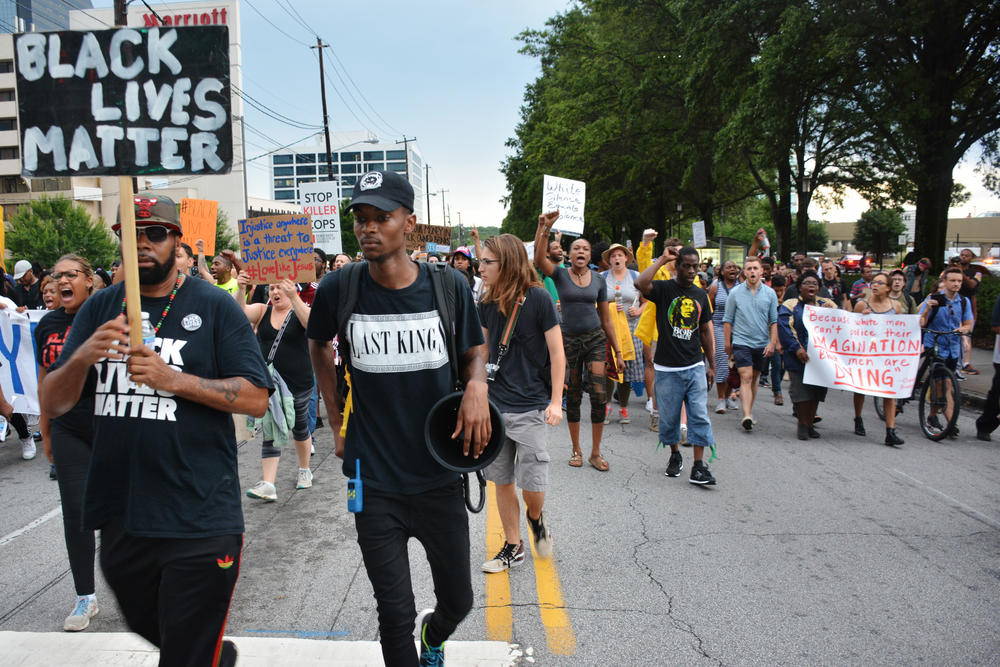Section Branding
Header Content
A Generational Divide In Civil Rights Activism?
Primary Content
Today, Atlanta Mayor Kasim Reed and Police Chief George Turner will meet with Black Lives Matter activists.
Reed and Turner agreed to the meeting last week, after days of protests where demonstrators clogged streets and tried to block the interstate: strategies that aren’t always well-received by veterans of the Civil Rights Movement and expose a generational divide within the movement.
Those strategies were on display last Monday, when a few hundred Black Lives Matter protesters marched through Atlanta’s Buckhead neighborhood blocking intersections and snarling traffic.
“And on the count of three, I want you to scream out names of the folks they put in the ground,” one demonstrator shouted through a megaphone to a group blocking an intersection outside of Lenox Square mall.
The call received a response of names like Philando Castille, Alton Sterling, Tamir Rice, and Michael Brown.
The demonstration followed a weekend of similar protests in the city, including one on a recent Friday night that brought out an estimated 10,000 people.
It also came in the wake of condescending comments from one of Atlanta’s most prominent civil rights icons.
“Andrew Young called us ‘unlovable little brats’,” recalled Aurelia Williams, 18, in the minutes before the protest started. “I think that’s really funny, because once he was an unlovable little brat just like us.”
Williams said she was disappointed by Young’s comments in which he called protesters “unlovable little brats,” but said “you have to love them anyways.”
Young’s words also didn’t sit well with 24-year-old activist Seyoum Bey.
“Honestly, I think there is a generational gap between what was taking place during the Civil Rights era and what’s taking place during the Black Lives Matter era,” Bey said.
Other protesters said their activism was built on the work done by leaders of the Civil Rights Movement like Young, but also said some of those leaders had lost touch and had become too critical of their methods.
“I saw people not realizing the danger of what they thought they wanted to do,” said Andrew Young last Wednesday, after the previous weekend’s protests had subsided.
He said his “spoiled brats” comment, which he later walked back, was directed at protesters threatening to spill onto the interstate, a tactic he worried would put lives in danger.
Young had other critiques of today’s protest movement.
“I don’t believe in protest for the sake of protest. Before we started the protest, we had a specific list of grievances and a specific list of answers that we were working toward,” he said, comparing today’s Black Lives Matter activism to the work he did during the Civil Rights Movement.
Young also worried that today’s protesters were responding to inequity with too much anger.
“And that’s the reason why I’m convinced we’re on the wrong page of the hymnbook,” he said.
“The fact that there is a generational divide is not surprising,” said Andra Gillespie, Emory University political science professor.
She studies generational differences in black politics at Emory University. She says older generations have always questioned the tactics of those who come after them.
“Keep in mind that, 50 years ago, Andrew Young was on the other side of that generational divide,” she said. “He would have been considered one of the rabble rousers because of his association with Martin Luther King.”
But, Gillespie said there are things both young and old have to offer each other.
“I think that the energy of young people coupled with the experience of the elders could actually create a really really dynamic combination if they would be willing to sit down and work together,” she said.
“If you make good gumbo, you gotta have a lot of different ingredients,” said Richard Rose, President of the Atlanta chapter of the NAACP. “If you try to have just a homogenous way of looking at things, I don’t think you’ll be successful in any effort to make change.”
Rose was active in the Civil Rights Movement and said it’s also important to remember the struggle is nothing new.
“‘Black lives matter’ is a good catchphrase, but the Black Lives Matter movement has been around since the early abolition movement,” he said.
An older generation might have stepped off the front lines and a new generation might have stepped up, but Rose says they need to work together. They still have a long way to go.




